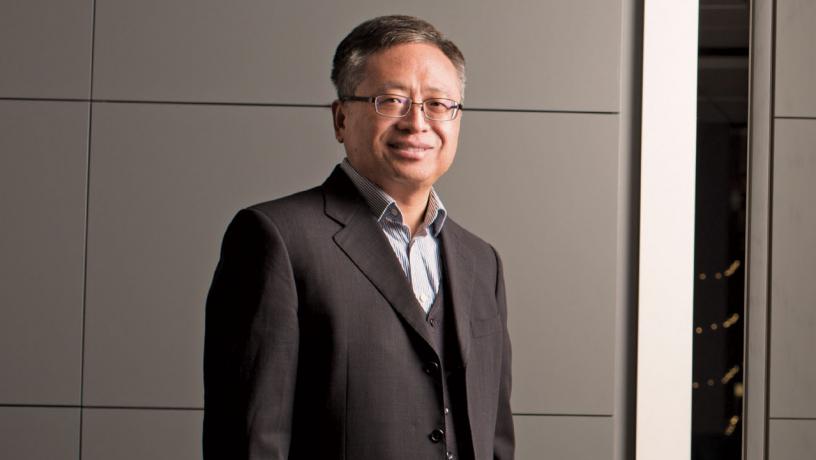Injecting Emotion into the Financial Equation
Xunyu Zhou's vision of intelligent asset management combines behavioral finance, data analytics, and machine learning.
As financial technology remakes a broad spectrum of sales and trading activities, one emerging sector is robo-advising—taking human advisers out of the process of balancing portfolios. An even newer area is automated asset management: a more complex task on a larger scale, which has the potential to make a major contribution to shaping investment strategies and creating new businesses. But intelligent machines can only do the job better than people if the element of human behavior and emotion is baked in.

Xunyu Zhou combines behavioral finance, data analytics, and machine learning to improve financial asset management.
Launched in January, Columbia Engineering’s Center for Intelligent Asset Management aims to do just that. The brainchild of Xunyu Zhou, Liu Family Professor of Industrial Engineering and Operations Research, the center is funded by a $2 million gift from Financial Data Technologies (FDT), a Hong Kong–based financial technology company. Its focus will be on improving automated asset management with the aid of a unique trove of data on how people make financial decisions.
That data is the product of another project Zhou was involved in from 2014 to 2016. He was the founding director of Oxford University’s Oxford-NIE Financial Big Data Laboratory, also funded by FDT. Zhou considers the Oxford lab a “sister lab” to Columbia’s center; the secret weapon both share is an arsenal of data that derives from FDT’s simulated trading platform app. The app’s millions of users—mostly college students testing their skills with virtual money in actual, real-time trading and investing scenarios—provide a large and continuing source of information, enabling Oxford’s, and now Columbia’s, researchers to employ big data analytics to infer financial behavior in an effort to develop metrics.
Machine learning will play a dominant role in the center’s work. Traditional asset management employs a simple mathematical model that relies on best estimates of selected market parameters such as volatility and return rates to generate the best trading strategy. But with computer systems generating virtually infinite random market scenarios, the models can rely on premises that are far more certain. Using reinforcement learning techniques, Zhou’s team will experiment with reward functions to teach the system various trading strategies and then will let different strategies compete against each other. “If you view the experience of the finance community over many years as an evolutionary process of developing and choosing the best trading policies, we are essentially replacing time with space to find superior strategies much more quickly,” said Zhou.
The challenge is the field’s youth and consequent scarcity of literature, Zhou pointed out: “We first have to develop the methodologies to generate the algorithms.” His starting team includes IEOR faculty, finance industry practitioners, Columbia Business School faculty, and students. Zhou expects to recruit computer scientists as the work progresses to create a highly interdisciplinary collaboration. Eventually, he envisions starting a company and licensing the technology for commercial use.
